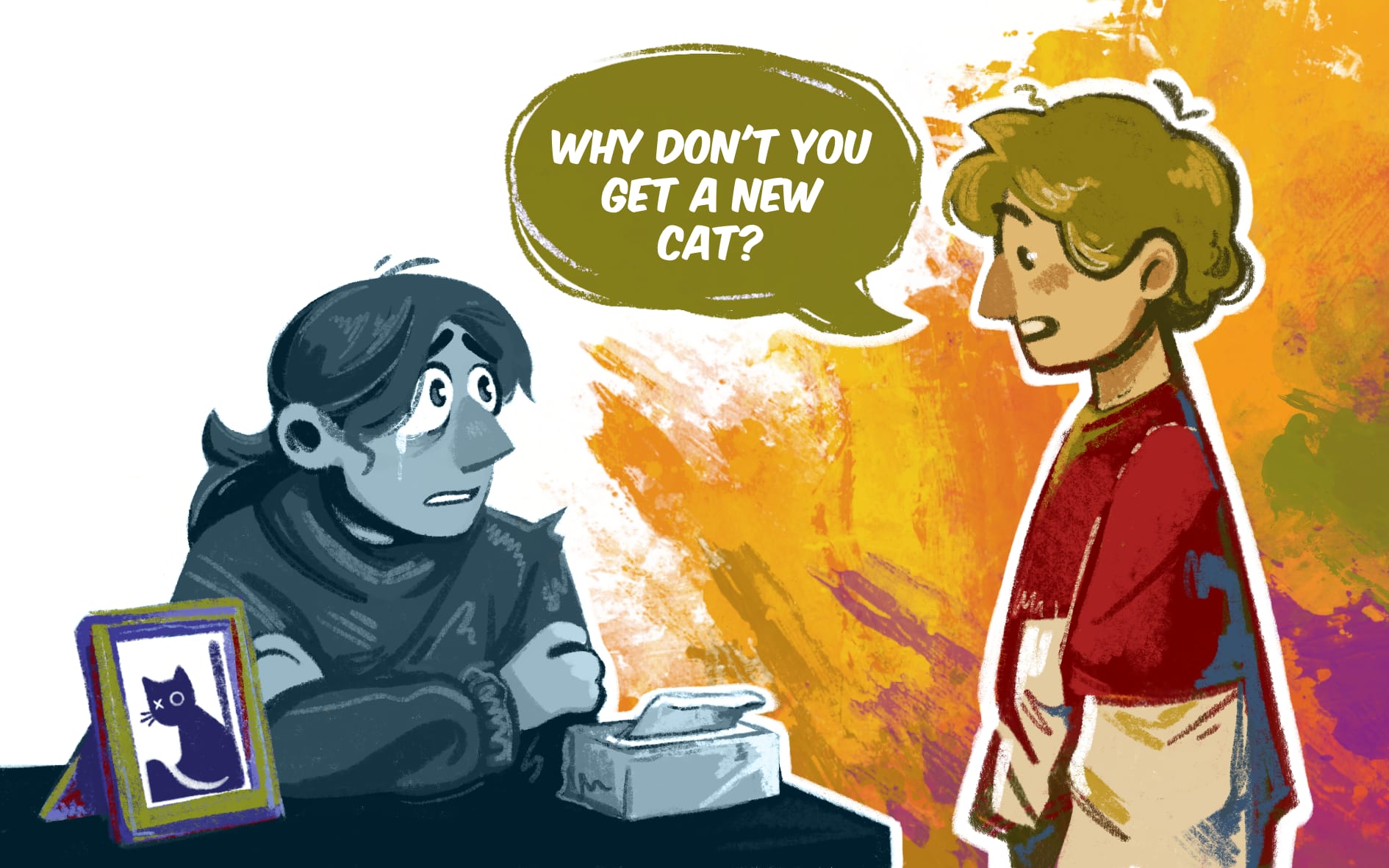
Tree-Hugging in the Time of Corona
Second-year Psychology students participating in the University Honours College follow a workshop on Blogging Science, in which they learn to communicate science to the general public, by means of informing, giving an opinion, and relating issues in science to issues in society. This year a selection of these written blog posts is published on Mindwise. Today’s post is by Maxi Bauerschmidt.
“Wildness is the preservation of the World.”
– Henry David Thoreau, Walking
Due to the Corona pandemic, our relationships may change: perhaps we are reaching out to people whom we have not talked to in many years. In contrast, we may feel more alone than ever and our mental health may suffer. The Corona crisis produces a unique combination of stressors which are linked to increased anxiety, depression, self-harm and suicide. Moreover, increased screen-time and media consumption, a lack of routine, a lack of predictability, and fear of the future can further exacerbate matters (Holmes, et al., 2020). For these reasons, now may be a good time to reach out to another neglected friend: nature.
It is widely and intuitively accepted that time spent in nature is beneficial for the body and mind. Findings indicate that contact with nature is intricately linked to ailments such as depression, anxiety, migraines, attention-deficit/hyperactivity disorder and more (Kuo, 2015). For this reason, ecotherapy – the healing of body and mind through a connection to nature – should not be overlooked (Summers & Vivian, 2018). Examples include forest therapy: as opposed to walks in urban areas, walks in forest areas (as short as 15 minutes long) have been found to significantly lower measures of anxiety, depression, fatigue and confusion, and increase positive mood (Bielinis, 2019; Song, et al., 2018). Despite these promising findings, only 10% of participants in a recent survey mentioned the use of nature as a coping mechanism during this global pandemic (COVID-19 and Mental Wellbeing, 2020).
Perhaps we need to remember that the best things in life are free. Therefore, let us go on a walk together, through the Noorderplantsoen, to explore the benefits of a simple walk in nature. Play this as you read.
Leaving the House
Wrapped in a light jacket, you drag your fatigued legs through the front door and immediately feel a cool breeze rush into your lungs. Once you enter the park, the air transforms, becoming crisper and more fragrant. This is due to particles called phytoncides: essential oils released by trees which increase the activity of natural killer cells (cancer-fighting cells), thus boosting your immune system, which may also increase activation of the parasympathetic nervous system (Li, 2010). You are starting to feel more relaxed.
As you continue walking along a tree-lined path, you briefly remember an upcoming deadline. Your mind races, and so does your heart: your sympathetic nervous system is in overdrive again. However, the rustling trees and chirping birds slowly calm you down again. Indeed, nature sounds significantly recover stress levels faster than decibel-matched noise or ambient noise, likely due to the inherent pleasantness of nature sounds. If you ever get stuck in your room because the park is too full, you can also listen to waterfalls (Alvarsson, Wiens, & Nilsson, 2010) or watch footage of trees on your laptop; the restorative effects are seemingly similar (Ulrich, et al., 1991).
Atop a steep hill, you notice the beauty that surrounds you: mighty green trees and swaying petals. You are engrossed by it, because, according to the biophilia hypothesis, humans have an innate attraction to other life forms. This is supported by evolutionary explanations which state that humans have had to adapt to life in nature, as those who could survive were more likely to pass on their genes (Hartig, et al., 2010). Perhaps, for this reason, many aspects of nature improve our health: our body feels most at home in nature.
Furthermore, you may be drawn to these sights because, as the perceptual fluency account suggests, nature is easy for the brain to process, due to its fractal-like geometry (Joye, 2007). This means that nature contains ever-repeating patterns at differing scales (most noticeable in succulents [insert image link 1]), requiring fewer cognitive resources to process than urban settings, thus preventing mental fatigue. Therefore, you may start to experience increased focus whilst feelings of frustration begin to fade.
You continue walking along a serene, hazel-tinted canal, with your attention fixated on the lush surroundings; you become increasingly aware of the vastness of nature. You experience awe, a positive emotional response toward nature, comparable to a meditative state. You may feel more patient, more empathetic, and generally happier (Rudd, Vohs, & Aaker, 2012).
Making our Way Back
As you return home, soft-gazed and tranquil, you notice feeling less stressed, more vital and more mindful. You feel a connectedness that overcomes that dull feeling of loneliness you’ve experienced over the past couple of days.
Whilst a single walk in nature will not heal all of your problems, more time spent in nature can provide some respite from poor mental health. This time of physical distancing is a time to go inwards, but also a time to look into nature: since we cannot hug our friends right now, we could take this time to become tree-huggers instead.
References
Alvarsson, J. J., Wiens, S., & Nilsson, M. E. (2010). Stress Recovery during Exposure to Nature Sound and Environmental Noise. International Journal of Environmental Research and Public Health, 1036–1046. doi:10.3390/ijerph7031036
COVID-19 and Mental Wellbeing. (2020, April 16). Retrieved from Isos MORI: https://www.ipsos.com/ipsos-mori/en-uk/Covid-19-and-mental-wellbeing
Hartig, T., van den Berg, A. E., Hagerhall, C. M., Tomalak, M., Bauer, N., Hansmann, R., . . . Carrus, G. (2010). Health Benefits of Nature Experience: Psychological, Social and Cultural Processes. In Forest, trees and human health(pp. 128-167). Dordrecht: Springer Science Business and Media. doi:10.1007/978-90-481-9806-1_5
Holmes, A. E., O’Connor, R. C., Perry, H. V., Tracey, I., Wessely, S., Arsenault, L., . . . Silver, R. C. (2020, April 15). Multidisciplinary research priorities for the COVID-19 pandemic: a call for action for mental health science. Lancet Psychiatry. doi:https://doi.org/10.1016/S2215-0366(20)30168-1
Joye, Y. (2007). Architectural Lessons from Environmental Psychology: The Case of Biophilic Architecture. Review of General Psychology, 305–328. doi:10.1037/1089-2680.11.4.305
Kuo, M. (2015). How might contact with nature promote human health? Promising mechanisms and a possible central pathway. Cognitive Science. doi:10.3389/fpsyg.2015.0109
Li, Q. (2010). Effect of forest bathing trips on human immune function. Environmental Health and Preventative Medicine, 9-17. doi:10.1007/s12199-008-0068-3
Rudd, M., Vohs, K. D., & Aaker, J. (2012). Awe Expands People’s Perception of Time, Alters Decision Making, and Enhances Well-Being. Psychological Science. doi:10.1177/0956797612438731
Summers, J. K., & Vivian, D. N. (2018). Ecotherapy – A Forgotten Ecosystem Service: A Review. Frontiers of Psychology. doi:10.3389/fpsyg.2018.01389
Ulrich, R. S., Simons, R. F., Losito, B. D., Fiorito, E., Miles, M. A., & Zelson, M. (1991). Stress recovery during exposure to natural and urban environments. Journal of Environmental Psychology, 201-230. doi:10.1016/S0272-4944(05)80184-7





Very good article! I’m really experienced it during this Covid19 period: stress and somehow depression. Walking the dogs in the forest 5 mom from my home was always helping a lot. Nice how you explain why it helps me. Thanks! Wish everyone to stay healthy during this time and go out in nature as often as possible!
I thought it would be nice to add some concrete suggestions for walks in the Groningen area here: what about the ‘ommetjes’ at landschapsbeheergroningen.nl, the hiking routes at staatsbosbeheer.nl, or see sites like wandelenrondroden.nl and try Blotevoetenpad Opende…
Wat een leuk artikel!